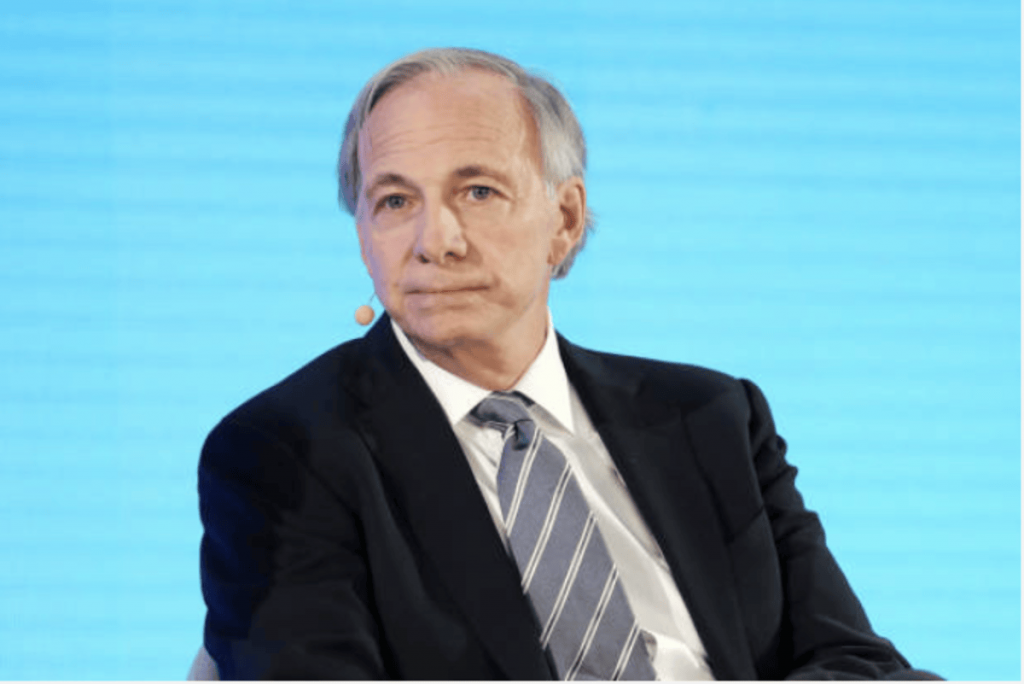Understanding Esophageal Cancer
- Billionaire Ray Dalio was diagnosed with Barrett’s esophagus, a precancerous condition that increases a person’s risk of esophageal cancer.
- He pushed for second and third opinions from medical experts, stressing that it’s important for him to consider multiple perspectives and learn about his condition before deciding to get surgery.
- Esophageal Cancer is a disease that causes cancer cells to form in the tissues of the esophagus, a hollow, muscular tube that food and liquid move through. The disease can be tough to treat because it is often diagnosed late.
- Several lifestyle factors, like smoking or heavy alcohol use, can increase a person’s risk of developing the disease.
In 2017, the 75-year-old opened up about his life-changing medical experience in his book, Principles, where he discusses the importance of using expert knowledge and keeping in mind all considerations when making health decisions.
Read More
Expert Resources on Esophageal Cancer
- Esophageal Cancer Early Detection and First Steps
- Esophageal Cancer: Getting Emotional Support
- Esophageal Cancer: Key Terms to Know
- Considering Different Treatment Combinations for Esophageal Cancer
- Do You Worry Heartburn Could Be Dangerous? A Possible New Way To Screen For Esophageal Cancer Without Invasive Tubes
- Finally Some Progress For Esophageal Cancer Patients — Two Immunotherapy Drugs Are Boosting Survival
For cases like Dalio’s, the typical approach would be to remove the esophagus, but his doctor suggested he wait to see how things progressed.
Instead of taking the physician’s recommendation at face value, he asked his personal physicians to set up visits with four other experts on the disease. The billionaire wanted to learn from other experts aside from his doctor.
The first expert, a head of thoracic surgery at a major cancer hospital, contradicted what the first physician said: she recommended a surgery that could cure him, but the procedure had a high chance of a crippling outcome.
That’s when Dalio decided to call his Johns Hopkins physician on the spot and have the two experts chat. Although the doctors were courteous to each other, he was worried they weren’t prioritizing finding the best solution.
WATCH: Advanced Esophageal Cancer Patients Have a Hopeful New Therapy Option
“While the two doctors had told me completely different things when I met with them in person, when they were on the phone together, they sought to minimize their disagreement and make the other look good, putting professional courtesy ahead of thrashing things out to get at the best answer,” he said.
“Still, the differences in their views were clear, and listening to them deepened my understanding.”
After seeing a third doctor who suggested surgery and endoscopic exams once a quarter to manage his condition, he got the three specialists together to discuss a solution. The trio of doctors agreed on the scoping procedure, so he went through with it — and later found out the condition wasn’t as severe after all.
“Even experts can make mistakes; my point is simply that it pays to be radically open-minded and triangulate with smart people,” he said.
“Had I not pushed for other opinions, my life would have taken a very different course. My point is that you can significantly raise your probabilities of making the right decisions by open-mindedly triangulating with believable people.”
Screening For Esophageal Cancer
Unfortunately, esophageal cancer is usually hard to detect early because of its subtle symptoms. People often don’t notice symptoms until its advanced stages, and they may not think it’s cancer right away.
“Esophageal cancer, we know is a tough one,” Dr. Brendon Stiles, a thoracic surgeon at Montefiore Medical Center, told SurvivorNet. “It’s one of the cancers with some of the lowest cure rates out there, but like many cancers, if we find it early, we can often treat it effectively,either with surgery, with surgery and chemotherapy, with chemotherapy and radiation.”
Still, it’s important to be aware of signs of this disease, which include:
- Pain/difficulty swallowing
- Weight loss
- Pain behind the breastbone
- Hoarseness/cough
- Indigestion/heartburn
- A lump under the skin
Dr. Stiles recommends that patients report any symptoms that may indicate esophageal cancer to their doctors right away, since there are more treatment options when the cancer is caught early.
A New, Less Invasive Detection Method
AI could help with detecting a person’s risk for esophageal cancer— without the invasive tubes.
Mayo Clinic gastroenterologist and researcher Dr. Prasad Iyer, M.D., who is looking to increase screening rates for Barrett’s esophagus, recently told Mayo Clinic, “We now have access to new, minimally invasive tools for Barrett’s esophagus screening.”
According to Mayo Clinic, Dr. Iyer and his research team conducted a study to develop and test a tool using AI “to predict the risk of Barrett’s esophagus and esophageal cancer based on data from a large database of de-identified electronic health records.”
The findings were published last year in Clinical and Translational Gastroenterology, in an article titled, “Development of Electronic Health Record-Based Machine Learning Models to Predict Barrett’s Esophagus and Esophageal Adenocarcinoma Risk.”
As per the study’s highlights, which nots that Barrett’s esophagus (BE) is a a main risk factor for esophageal adenocarcinoma (EAC), “A machine learning-powered tool to assess the risk of incident BE/EAC was developed using variables available in the deidentified electronic health record of 6 million patients.”
The study found that the new tool is more accurate than what’s currently available for patients and it could be “integrated into the electronic health record as a clinical prompt for providers to consider BE screening at clinically appropriate thresholds.”
Resources for Support
See these SurvivorNet resources on the importance of having a good support system amid a diagnosis, key terms to know, and four questions to ask your doctor.
WATCH: Esophageal Cancer: Getting Emotional Support
Contributing: SurvivorNet staff
Learn more about SurvivorNet's rigorous medical review process.

